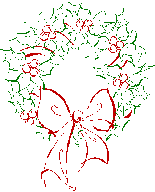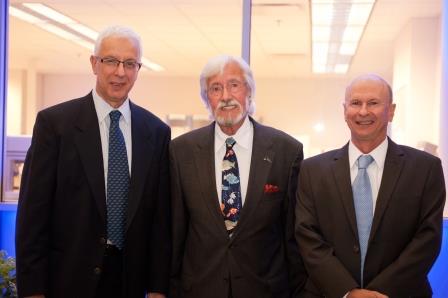Seminar 10/30/13: Bastian Bentlage, UMCP
Wednesday 30 October 2013 at 3:00pm
Title: “Jellyfish species distributions in the open oceans”
Speaker: Bastian Bentlage, Ph.D.
UMCP
Host: Tsvetan Bachvaroff, Ph.D.
« September 2013 | Main | November 2013 »
Wednesday 30 October 2013 at 3:00pm
Title: “Jellyfish species distributions in the open oceans”
Speaker: Bastian Bentlage, Ph.D.
UMCP
Host: Tsvetan Bachvaroff, Ph.D.
Thursday 24 October at 12:00pm
Title: Bacterial symbionts of humans and marine animals: Small-molecule-mediated interactions
Speaker: Mohamed Abou Donia, Ph.D.
University of California, San Francisco
Abstract: Multicellular organisms often live in a symbiotic relationship with various microbial partners. Surprisingly, microbial symbionts of different hosts use a common strategy of producing biologically active small molecules to establish and maintain their symbiotic relationship. During this talk, I will highlight two examples of symbioses that involve the production of small molecule natural products: the symbiosis between Cyanobacteria and marine tunicates and the symbiosis between Firmicutes and humans. In both cases, small molecules produced by bacterial symbionts not only mediate host-microbe interactions but also serve as potential leads for drug discovery, illustrating the direct effect of the environment on human health.
Host: Russell T. Hill, Ph.D.
Wednesday 23 October 2013 at 3:00pm
Title: “Biogeography, ecology and evolution of viruses infecting marine cyanobacteria”
Speaker: Marcie Marston, Ph.D.
Roger Williams University, Department of Biology and Marine Biology
Host: Feng Chen, Ph.D.
Relevant articles by Dr. Marston:
Wednesday 20 November 2013 at 3:00pm
Title: “Larval mortality and adaptive change in marine invertebrates: Genomic insight from the ocean and the “farm””
Speaker: Louis Plough, Ph.D.
UMCES-HPL
Host: Allen Place, Ph.D.
Location: IMET's Multi-Purpose Room
Winter Break
No seminars are scheduled between December 18 and January 14. Enjoy the break and please join us for Town Hall on January 15th!


Photos from the event have been posted to Facebook!
Wednesday 16 October 2013 at 12:00pm
Title: Dissecting sources of genome instability in cancer
Speaker: Stephen A. Roberts, Ph.D.
IRTA Postdoctoral Fellow, National Institute of Environmental Health Sciences
Abstract: Frequency, location and timing are key parameters determining biological outcomes of mutations. Recent sequencing of human tumors has enabled us to address how these parameters contribute to a cancer mutator phenotype. While inactivation of DNA repair can lead to persistent, high mutation rates, few such examples are reported in cancers. Transient acquisition of multiple mutations in one or a few cell generations is an alternative and could produce synergistic or compensatory changes leading to rapid establishment of a growth advantage. Using a combination of experimental model studies and bioinformatics analysis of clinical mutation databases, I have shown that chronic DNA damage can generate clusters of simultaneous multiple mutations via transient mutagenesis. Genome sequencing of methyl methanesulfonate-treated yeast revealed mutation clusters composed of “strand-coordinated” changes originating from lesions occurring exclusively on one DNA strand, indicating the mutations were likely induced in the same generation. Mutation patterns and genetic controls suggested these mutations resulted from alkylations in long single-strand (ss)DNA formed during double-strand break repair and replication. Analogous simultaneous clustered mutations also occur in human cancers. Using a bioinformatics approach, I identified clusters among mutations that occurred in 41 human cancer genomes. Similar to MMS-induced clusters in yeast, clustered mutations in these cancers were highly strand-coordinated. One unusual class was composed entirely of mutated cytosines and resided near chromosome rearrangement breakpoints. Surprisingly, nearly all of these mutations occurred in a trinucleotide motif, TpCpW (W=A or T), targeted by APOBEC family cytosine-deaminases. Thus these highly regulated enzymes, normally involved in RNA editing and retrotransposon or retrovirus restriction, may inadvertently induce mutations in human malignant tumors. Using the motif specificity defined in APOBEC-induced clusters to characterize 954,247 mutations found in 2,680 exomes of 14 different cancer types, primarily from The Cancer Genome Atlas, I further found that APOBEC signature mutagenesis is pervasive throughout many cancer genomes, reaching 68% of all mutations in some samples. Across cancer types, APOBEC signature mutations readily occurred within genes whose alteration can drive cancer, establishing this form of mutagenesis as one of the most predominate carcinogenic mutagens. I propose that frequent APOBEC-induced mutation is carcinogenic and intend to use a variety of biochemical, genetic, and bioinformatics approaches to further investigate these enzymes, their environmental regulation, and the consequences of their activity on genome instability and cancer progression.
Host: Russell T. Hill, Ph.D.
WJZ: Famed 'Ocean Guy' Jean-Michel Cousteau Backs Baltimore Fish Farm
WJZ's story
In lieu of an IMET Seminar, Jean-Michel Cousteau will gave a public lecture at IMET.
Wednesday 2 October 2013 at 3:00pm
Tentative Title: “Hemocytes and antiviral defense in Drosophila”
Speaker: Dr. Javier Robalino
Institute for Bioscience and Biotechnology Research (IBBR), University of Maryland College Park
Host: Rosemary Jagus, Ph.D.
This page contains all entries posted to Institute of Marine & Environmental Technology in October 2013. They are listed from oldest to newest.
September 2013 is the previous archive.
November 2013 is the next archive.
Many more can be found on the main index page or by looking through the archives.